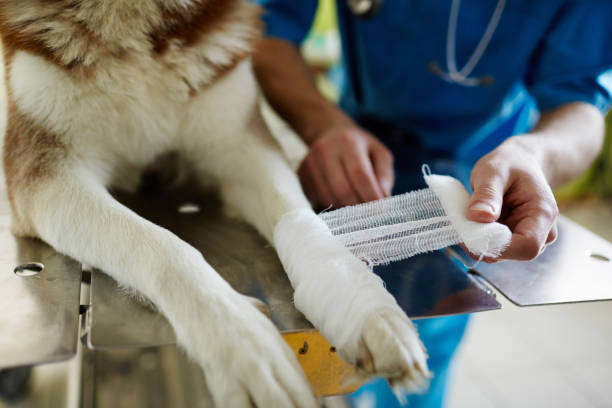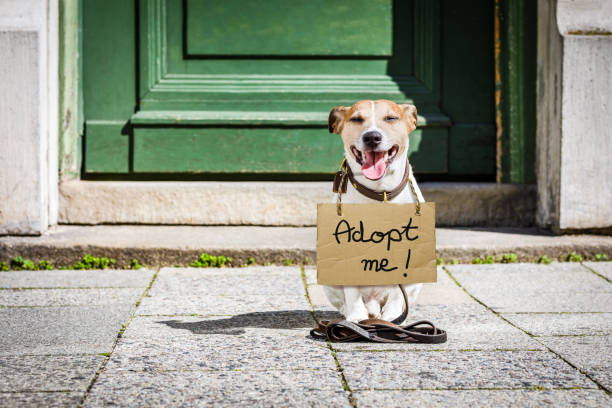Emergencies can strike anytime, and being prepared is crucial, especially when pet parents entrust their pets to your care.
Whether it’s a natural disaster, a medical emergency, or an unexpected incident, having a solid plan in place can make all the difference. Let’s explore some essential steps pet-care businesses can take to ensure the safety and well-being of their furry clients during emergencies.
Understanding Potential Emergencies
 Pet-care businesses must be aware of the various types of emergencies that can occur. These include natural disasters like hurricanes, floods, and earthquakes, as well as medical emergencies such as sudden illnesses or injuries. Additionally, incidents like fires, power outages, and even security breaches can pose significant risks. By understanding the potential emergencies, businesses can tailor their preparedness plans to address specific scenarios.
Pet-care businesses must be aware of the various types of emergencies that can occur. These include natural disasters like hurricanes, floods, and earthquakes, as well as medical emergencies such as sudden illnesses or injuries. Additionally, incidents like fires, power outages, and even security breaches can pose significant risks. By understanding the potential emergencies, businesses can tailor their preparedness plans to address specific scenarios.
- Natural Disasters: Hurricanes, floods, earthquakes.
- Medical Emergencies: Sudden illnesses, injuries.
- Incidents: Fires, power outages, security breaches.
Developing an Emergency Plan
Creating a comprehensive emergency plan is the cornerstone of preparedness. Start by identifying the key components of your plan, which should include evacuation procedures, communication strategies, and emergency contacts. Ensure that all staff members are familiar with the plan and know their roles and responsibilities during an emergency.
For instance, imagine a scenario where a sudden fire breaks out in your facility. With a well-rehearsed emergency plan, your staff can quickly and calmly evacuate all pets, ensuring their safety. Regular drills would have prepared them to handle such a situation without panic.
Stocking Emergency Supplies
 Having the right supplies on hand is essential for managing emergencies. Your emergency kit should include first-aid supplies, medications, food and water, leashes and carriers, and any other items specific to the pets in your care. Additionally, important documents such as medical records and contact information should be kept readily accessible. Regularly check and update your supplies to ensure they are in good condition and up to date.
Having the right supplies on hand is essential for managing emergencies. Your emergency kit should include first-aid supplies, medications, food and water, leashes and carriers, and any other items specific to the pets in your care. Additionally, important documents such as medical records and contact information should be kept readily accessible. Regularly check and update your supplies to ensure they are in good condition and up to date.
- First-Aid Supplies: Bandages, antiseptics, medications.
- Pet Essentials: Food, water, leashes, carriers.
- Important Documents: Medical records, contact information.
Communication is Key
Effective communication is vital during an emergency. Establish a clear communication plan that includes notifying staff, pet parents, and emergency services. Utilize multiple channels such as phone calls, text messages, and social media to disseminate information quickly. Ensure that contact information for all stakeholders is current and easily accessible. Keeping everyone informed can help manage the situation more effectively and reduce panic.
Training and Drills
 Regular training and drills are essential for ensuring that your team is prepared for emergencies. Conducting mock drills can help staff practice their roles and identify any gaps in the emergency plan. Training should cover first-aid procedures, evacuation protocols, and communication strategies. By regularly reviewing and practicing these procedures, your team will be better equipped to handle real-life emergencies.
Regular training and drills are essential for ensuring that your team is prepared for emergencies. Conducting mock drills can help staff practice their roles and identify any gaps in the emergency plan. Training should cover first-aid procedures, evacuation protocols, and communication strategies. By regularly reviewing and practicing these procedures, your team will be better equipped to handle real-life emergencies.
- First-Aid Procedures: Basic pet first-aid skills.
- Evacuation Protocols: Safe and efficient evacuation methods.
- Communication Strategies: Effective ways to relay information.
Partnering with Local Authorities
Building relationships with local emergency services and veterinary professionals can be invaluable during a crisis. Establish connections with local fire departments, animal shelters, and veterinary clinics. These partnerships can provide additional resources and support when needed. Additionally, staying informed about local emergency plans and resources can help you integrate your business’s plan with broader community efforts.
Preparing for emergencies is not just about having a plan; it’s about ensuring the safety and well-being of the pets in your care. By understanding potential emergencies, developing a comprehensive plan, stocking essential supplies, and maintaining clear communication, pet-care businesses can navigate crises effectively. Regular training and partnerships with local authorities further enhance your preparedness. Remember, being prepared can make all the difference in ensuring the safety of our furry friends!
Book a demo with Gingr today and keep your pet-care business ready for any situation!
Subscribe to the Gingr Blog






